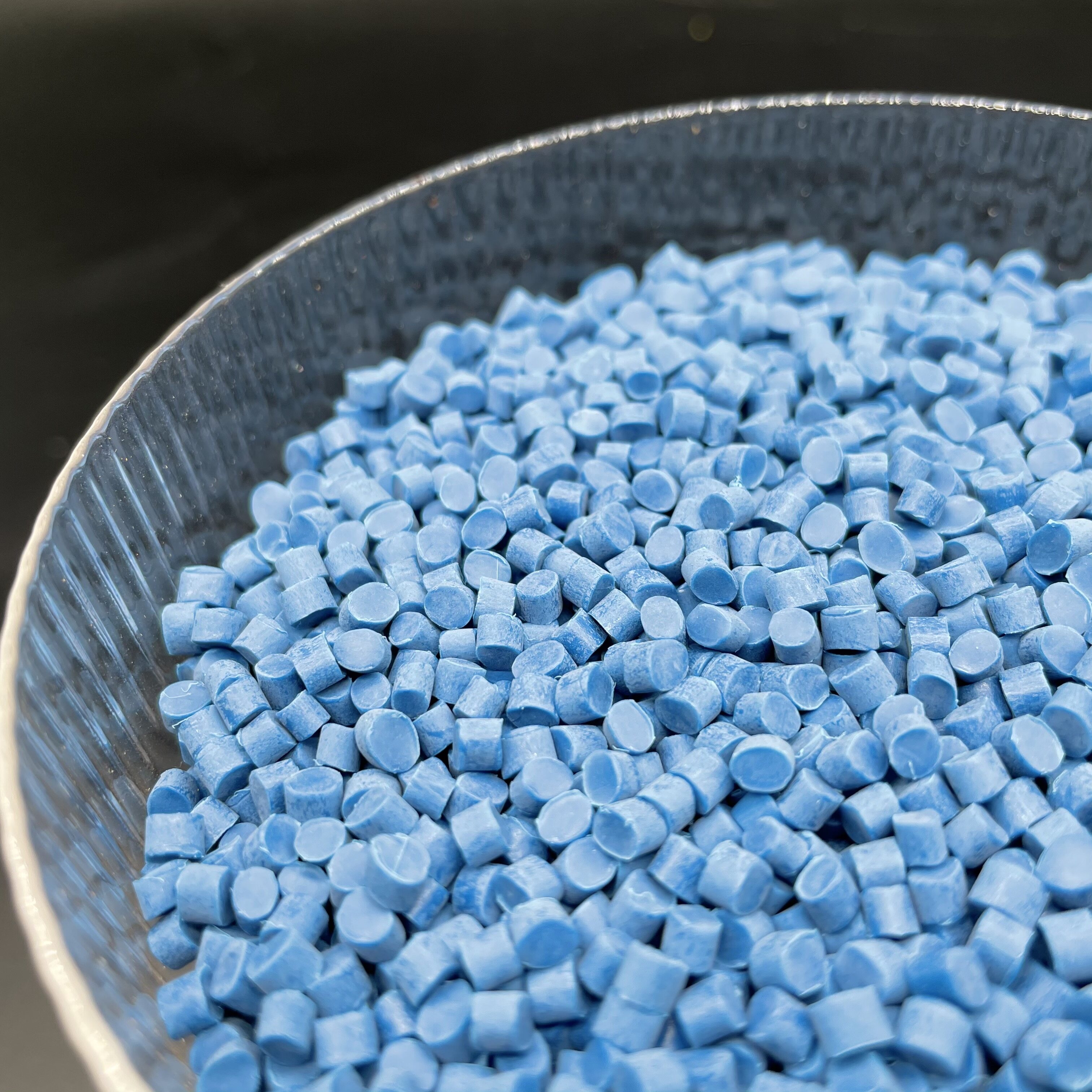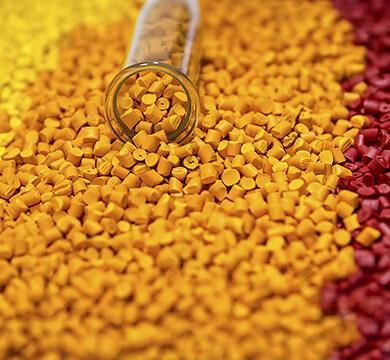Ошибка формата электронной почты
emailCannotEmpty
emailDoesExist
pwdLetterLimtTip
inconsistentPwd
pwdLetterLimtTip
inconsistentPwd

Offer Technical Support and Customized Solutions
The company is committed to creating new and improved plastic materials to meet the evolving demands of the market.

PP Particles Manufacturers: Your Guide to Finding Reliable Suppliers
As global demand for polypropylene (PP) particles continues to rise, businesses across industries are on the lookout for dependable PP particles manufacturers. These manufacturers play a critical role in producing high-quality polypropylene materials, which are widely used in various applications like packaging, textiles, automotive parts, and more. But with so many suppliers in the market, how can you ensure you're working with a reliable source?
In this blog, we will take a deep dive into the world of PP particles, exploring everything from sourcing agents to the characteristics that define a reputable manufacturer. Whether you are new to the industry or an experienced player, this guide will help you make informed decisions when sourcing PP particles.
What Are PP Particles?
Before we discuss how to find the best PP particles manufacturers, it's essential to understand what PP particles are and their significance. Polypropylene (PP) is a thermoplastic polymer that is produced through the polymerization of propylene gas. The result is a highly versatile material used in numerous applications. PP particles are the raw material form of polypropylene, which manufacturers further process into various products.
Key Properties of PP Particles
PP particles are favored for several reasons, including:
High chemical resistance: PP particles can resist most chemicals, including acids and bases, making them ideal for various industrial applications.
High melting point: PP has a melting point of around 130°C, which makes it suitable for use in products that must withstand high temperatures.
Excellent tensile strength: The material's toughness ensures that products made from PP can withstand pressure and stress.
Lightweight yet durable: PP is one of the lightest thermoplastics, making it an excellent choice for products where weight is a concern, such as packaging materials.
With these properties, it's no surprise that the demand for high-quality PP particles continues to grow globally.
Why Quality Matters in PP Particles Manufacturing
When it comes to sourcing PP particles, quality is paramount. Low-quality PP particles can lead to defects in the final product, including decreased durability, poor performance under stress, and susceptibility to damage in extreme conditions. For industries like automotive or healthcare, where product performance is critical, working with high-quality PP particles manufacturers is non-negotiable.
How Poor Quality Affects Your Business
Using substandard PP particles may result in:
Higher production costs: Poor-quality materials may break or fail during manufacturing, leading to costly downtime and wasted resources.
Product recalls: Defective products that reach the market can damage your brand's reputation and lead to expensive product recalls.
Safety issues: In industries like medical supplies or food packaging, poor-quality materials can pose health risks, leading to legal ramifications.
The Role of PP Particles Manufacturers in Quality Control
Reliable manufacturers implement stringent quality control measures throughout the production process. These controls include rigorous testing of raw materials, adherence to international standards, and ongoing product testing to ensure that the final PP particles meet all required specifications.
How to Choose the Right PP Particles Manufacturers
Choosing a reliable manufacturer can be challenging, but there are several key factors to consider that will help you make the best choice for your business.
1. Check for Certifications and Industry Standards
Reputable manufacturers should have certifications that demonstrate their adherence to quality control measures. These certifications often include ISO standards (such as ISO 9001 for quality management systems) or industry-specific certifications related to their products. These ensure that the manufacturer follows internationally recognized processes in production, quality control, and management.
2. Evaluate Production Capacity and Technology
Production capacity is another crucial factor when selecting a PP particles manufacturer. Make sure the manufacturer can meet your volume requirements, both now and in the future. Advanced technology is also a significant plus. Manufacturers that invest in modern machinery are better equipped to produce high-quality PP particles efficiently.
3. Assess Their Supply Chain Reliability
The reliability of the manufacturer’s supply chain can directly impact your production schedule. It is vital to choose a manufacturer with a robust, well-managed supply chain to avoid delays or disruptions. This includes evaluating their raw material sources and distribution capabilities. A reliable supply chain can ensure that you receive consistent deliveries of PP particles without any interruptions.
4. Inquire About Customization Options
Depending on your industry, you may require specific types of PP particles with particular characteristics, such as higher impact resistance or UV stability. Leading PP particles manufacturers offer customization options to meet these needs, allowing you to order PP particles that fit your exact specifications.
5. Look for Environmental Responsibility
With sustainability becoming increasingly important, many companies are seeking manufacturers who take environmental responsibility seriously. This includes using eco-friendly production methods, minimizing waste, and offering recycled PP particles. Working with environmentally conscious manufacturers can help your business meet its own sustainability goals.
PP Particles Sourcing Agent: Is It Worth It?
If you are new to the polypropylene industry or are looking to source from an international supplier, you might consider working with a PP particles sourcing agent. Sourcing agents act as intermediaries, helping companies find reliable manufacturers, negotiate prices, and oversee quality control. While hiring a sourcing agent adds an additional cost, it can be a worthwhile investment, especially for businesses unfamiliar with the market or sourcing from overseas.
Benefits of Using a Sourcing Agent
Expert market knowledge: A sourcing agent with extensive experience in the PP particles industry will have established relationships with manufacturers, which can help you find the best deals and quality.
Time savings: By letting a sourcing agent handle the research, vetting, and negotiations, you save time and resources, allowing you to focus on your core business.
Reduced risk: Sourcing agents often conduct factory audits and oversee production processes to ensure that the materials meet your quality standards.
The Importance of Logistics in PP Particles Sourcing
Logistics is another critical factor in working with PP particles manufacturers. Delays or inefficiencies in transportation can have a significant impact on your production schedule, leading to increased costs and missed deadlines.
1. Shipping Options and Timelines
When choosing a manufacturer, inquire about their shipping options and timelines. Manufacturers with flexible shipping methods and faster delivery times can help you maintain smooth operations. If you are sourcing PP particles from international manufacturers, it's also essential to consider customs processes, import taxes, and tariffs.
2. Warehousing and Inventory Management
Some PP particles manufacturers offer warehousing solutions to help you manage your inventory. This is particularly useful if you need to order in bulk but don’t have the storage space. Warehousing options can also provide an added layer of flexibility to your supply chain, ensuring you have PP particles available as needed.
Global Market Trends in PP Particles Manufacturing
The PP particles market is expected to grow significantly over the next few years, driven by increasing demand from industries such as automotive, packaging, and textiles. Innovations in recycling technologies and eco-friendly alternatives are also creating new opportunities for PP particles manufacturers to meet the growing emphasis on sustainability.
1. Rising Demand from Packaging and Textiles
With e-commerce booming and global trade expanding, the need for durable, lightweight packaging materials continues to rise. Polypropylene's properties make it ideal for creating high-quality packaging materials. Similarly, the textile industry is seeing increasing use of PP materials in fabrics, particularly in nonwoven applications such as hygiene products and medical textiles.
2. Growth in the Automotive Sector
Polypropylene is increasingly being used in the automotive sector, where its lightweight yet durable characteristics are invaluable. With more car manufacturers aiming to reduce the weight of vehicles to improve fuel efficiency, PP materials are expected to play a more prominent role in the production of various automotive components.
3. Focus on Sustainable Solutions
Sustainability is becoming a crucial factor in the global plastic industry. As businesses strive to meet new environmental standards, manufacturers that offer recycled PP particles or eco-friendly production methods are likely to gain a competitive edge.
Conclusion: How to Successfully Source PP Particles
When it comes to sourcing high-quality PP particles, partnering with a reliable PP particles manufacturer is crucial. By taking into account factors such as production capacity, quality certifications, supply chain reliability, and environmental responsibility, you can ensure that your business receives the best materials for its needs.
For businesses new to the industry or those looking to source internationally, working with a PP particles sourcing agent can provide additional peace of mind by helping you navigate the market and find trustworthy suppliers.
As the global demand for PP particles continues to grow, staying informed about market trends and innovations will help you stay competitive and ensure long-term success in your business operations.
By following the guidelines outlined in this blog, you can confidently choose the right PP particles manufacturers to meet your production needs, ensuring that your products are made from the highest quality materials available.

